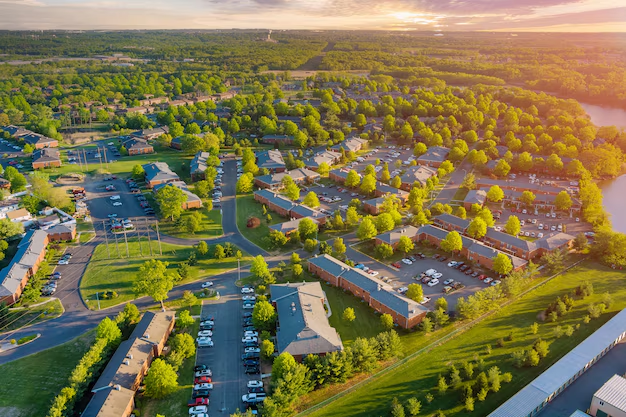Your Guide to Affordable Housing Greenville Sc
What You Get:
Free Guide
Free, helpful information about Affordable Housing FAQ and related Affordable Housing Greenville Sc topics.
Helpful Information
Get clear and easy-to-understand details about Affordable Housing Greenville Sc topics and resources.
Personalized Offers
Answer a few optional questions to receive offers or information related to Affordable Housing FAQ. The survey is optional and not required to access your free guide.
Discovering Affordable Housing Options in Greenville, SC
Finding affordable housing in Greenville, South Carolina can be challenging, especially as the area continues to grow in popularity. With a vibrant community and bustling economy, the demand for housing here is high. But there’s good news: there are numerous resources and programs available to help individuals secure affordable accommodations in this thriving city.
Navigate Through Local Housing Initiatives
Greenville County offers several initiatives aimed at providing affordable housing to residents. One notable effort is the Greenville County Redevelopment Authority, which is dedicated to fostering development across the county, focusing on safe and affordable housing options. They work with local developers to encourage the construction of affordable homes and offer various programs for low- to moderate-income families.
Explore Government-Assisted Housing
The Housing Choice Voucher Program, often referred to as Section 8, helps low-income families afford decent housing by providing rental subsidies. This program is managed by the local public housing agency and enables eligible participants to use vouchers toward renting homes in the private market.
Another option includes government-backed LIHTC Properties (Low-Income Housing Tax Credit), which are affordable living spaces subsidized by tax credits granted to developers. These properties are available specifically to low-income renters at reduced prices.
Tap into Financial Assistance and Support
For those looking for more financial flexibility, exploring state or federal assistance programs can be beneficial. The South Carolina State Housing Finance and Development Authority offers down payment assistance programs for first-time home buyers, which can alleviate some of the financial burdens that come with purchasing a new home.
If homeownership is a goal, securing a mortgage credit certificate (MCC) may also help. This tax credit allows homeowners to reduce the amount owed on federal taxes, making it easier to manage monthly mortgage payments.
Manage Debts and Build Credit
Often, people struggle with securing housing due to credit or debt management issues. Addressing these financial hurdles through debt relief programs and credit-building strategies can increase accessibility to better housing options. Consider consulting with a financial advisor or credit specialist who can guide you toward improving your credit score and managing debts more effectively.
Educational Grants and Resources
Education plays a pivotal role in achieving financial stability. Greenville’s local colleges and career training programs offer numerous educational grants and scholarships to help residents enhance their skills and improve employability. By pursuing higher education or vocational training, individuals can potentially increase their incomes, making affordable housing more attainable.
Ultimately, securing affordable housing in Greenville requires a multifaceted approach that combines understanding of local initiatives, leveraging financial assistance, and actively improving one’s financial health through education and good money management.
Useful Financial and Housing Resources for Greenville Residents
- 🏠 Greenville County Redevelopment Authority: Offers housing and development programs for affordable living.
- 📑 Housing Choice Voucher Program (Section 8): Provides rental assistance through subsidies.
- 🏢 Low-Income Housing Tax Credit (LIHTC) Properties: Affordable rental options through tax credit programs.
- 💰 South Carolina State Housing Finance and Development Authority: Down payment assistance for homebuyers.
- 💳 Mortgage Credit Certificate (MCC): Reduces taxes for homebuyers, easing monthly payments.
- 📚 Educational Grants: Improve skills and employability in local colleges and career programs.
- 🔍 Debt Relief Options: Professional advice to manage debt and improve credit.
These resources provide a springboard to achieve the dream of affordable, stable housing in Greenville, SC, supporting a higher quality of life for its residents.
What You Get:
Free Affordable Housing FAQ Guide
Free, helpful information about Affordable Housing Greenville Sc and related resources.

Helpful Information
Get clear, easy-to-understand details about Affordable Housing Greenville Sc topics.

Optional Personalized Offers
Answer a few optional questions to see offers or information related to Affordable Housing FAQ. Participation is not required to get your free guide.


Discover More
- 1 Bedroom Apartments For Rent In Chicago For $700
- 1 Bedroom Apartments That Accept Section 8
- 2 Bedroom Apartments For Rent In Chicago For $700
- 2 Bedroom Apartments For Rent In Philadelphia $600
- 2 Bedroom Apartments San Diego
- 330 Newtown Apartments
- 6 Bedroom House For Rent
- 600 Lofts Apartments
- Abilene Housing
- Abilene Housing Authority
